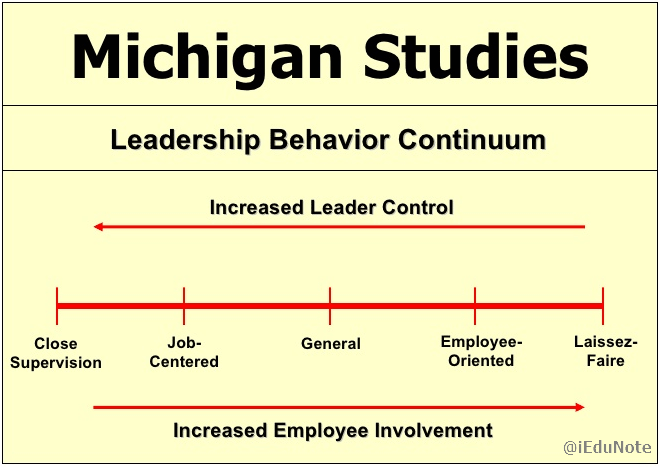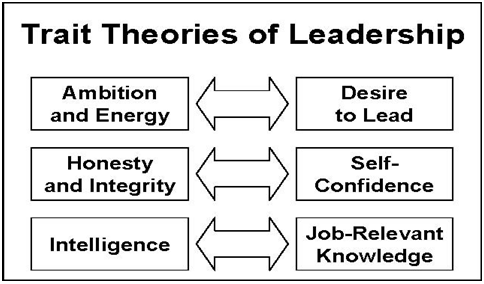Explore the Michigan Leadership Studies and its impact on leader behavior. Discover job-centered and employee-centered leadership styles for success.
What is Michigan Leadership Studies
Michigan Leadership Studies is a behavioral Leadership Theory that indicates the Institute for Social Research at the University of Michigan conducted empirical studies to identify styles of leader behavior that result in higher performance and satisfaction of a group.
The Michigan leadership studies identified two distinct styles of leadership;
Job-centered Leadership
Managers using job-centered leadership behavior pay close attention to subordinates’ work, explain work procedures and are keenly interested in performance.
Employee-centered Leadership
Managers using employee-centered leader behavior are interested in developing a cohesive workgroup and ensuring that employees are satisfied with their jobs.
The Michigan Leadership Studies found that both styles of leadership led to an increase in production, but it was slightly more in the case of production of the job-centered style.

However, the use of direct pressure and close supervision led to decreased satisfaction and increased turnover and absenteeism.
The employee-centered approach led to improved workflow procedures and more interaction cohesion, resulting in increased satisfaction and decreased turnover and absenteeism.
This suggested the superiority of the employee-centered leadership style.
The Michigan Leadership Studies were conducted around the same time as the Ohio State Leadership Studies, which also identified the focus on tasks and people.
The Michigan Leadership Studies added “Participative leadership” to the Ohio findings, moving the debate further into the question of leading terms rather than just individuals.
Evaluation of Michigan Leadership Studies
The value of Michigan Leadership Studies lies in the analysis of two leadership styles—task and employee-oriented styles.
Instead of restricting to traits of leaders, they concentrated on the behavior of leaders. These studies are criticized on the following grounds:
- The Michigan Leadership Studies failed to suggest whether leader behavior is a cause or effect. They did not clarify whether employee-centered leadership makes the group productive or whether the highly productive group induces the leader to be employee-centered.
- The Michigan Leadership Studies did not consider the nature of the subordinates’ tasks or their characteristics. Group characteristics and other situational variables were also ignored.
- The behavioral styles suggested by Michigan Leadership Studies have been termed static. A leader is supposed to follow either of the two styles, viz., task orientation and employee orientation. But a practical style may succeed in one situation and fail in another.
Moreover, leaders don’t restrict themselves to a particular style. They adopt both orientations in varying degrees to suit the particular situation.

![Leadership: Definition, Nature, Styles [Comprehensive Guide]](https://www.iedunote.com/img/1033/leadership.jpg)